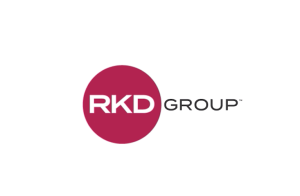Endowment and foundation managers are feeling less than bullish about their organizations’ investment portfolios following a year of mostly sluggish stock and bond market performance, high inflation, and slowing economic growth.
Fewer than one in five (19%) of managers surveyed recently said they were “very confident” about achieving their 3-year investment targets. As a result, more than half (52%) of respondents overall — and nearly two-thirds (64%) of those who manage smaller endowments and foundations valued at less than $1 billion — plan to respond by bulking up on alternative investments such as real estate, private equity, commodities, and cryptocurrency during the next year.
Researchers interviewed decision-makers at 100 organizations with asset valuations of $100 million or more. “Market headwinds and geopolitical uncertainty loom large, and the data suggest endowment and foundation investors are not immune from these concerns,” said Jeremy France, head of Morgan Stanley’s Graystone Consulting group, which commissioned the study this past May.
Despite lowered expectations, five times as many respondents (30%) plan to increase the size of their organizations’ investment teams next year as plan to decrease them (6%). Additionally, 78% either have an investment training program for their boards or recognize the benefits of having one, reflecting increased awareness of the need as fiduciaries to stay abreast of a changing investment landscape and ensure alignment of investment strategies with missions and cash flow needs.
“These organizations may be responding to, and preparing for, an investment landscape that has become more complex every year, especially as alternatives gain prominence and navigating ESG, impact, and mission-aligned investing requires balancing the views of numerous stakeholders,” wrote the report’s authors.
Mission alignment’s role in driving this trend was further underscored by the approximately one-third of respondents who cited impact or environmental and social and governance (ESG) goals (34%) or managing climate risk (29%) as reasons for investing in alternatives. However, alternatives can present their own complications with access to top investment managers (62%) and the need for expertise to perform due diligence (56%) ranking as two of the top three most frequently cited challenges to alternative investing.
Top financial concerns cited by managers included market volatility (69%), generating adequate investment returns (68%), slowing economic growth and threat of recession (65%), risk management (60%), and changing interest rates (52%). Geopolitical uncertainty ranked sixth (51%), which could now be higher given the ongoing conflict in the Middle East that erupted after the study was completed and fears this could lead to a wider war.
Working with an external investment consultant seems to allay some of these concerns and can even lead to significantly improved investor outlook. Nearly three times as many respondents who work with an external consultant expressed high confidence about achieving their investment goals versus those who do not (31% vs. 11%).
“The positive impact that working through these challenges with a consultant has on investor confidence is clear, which is something we see every day in the work we do with clients,” said France.
Researchers compiled these datapoints from respondents representing organizations with at least $100 million in assets under management, with 56 representing organizations valued at more than $1 billion. The organizations included a mix of endowments, public and private foundations, and other nonprofits. Nearly three-quarters (73%) of respondents were from the education sector. The balance spanned the fields of healthcare and wellness (10%), faith-based (10%), community development (6%), environmental (6%), and other (8%).








